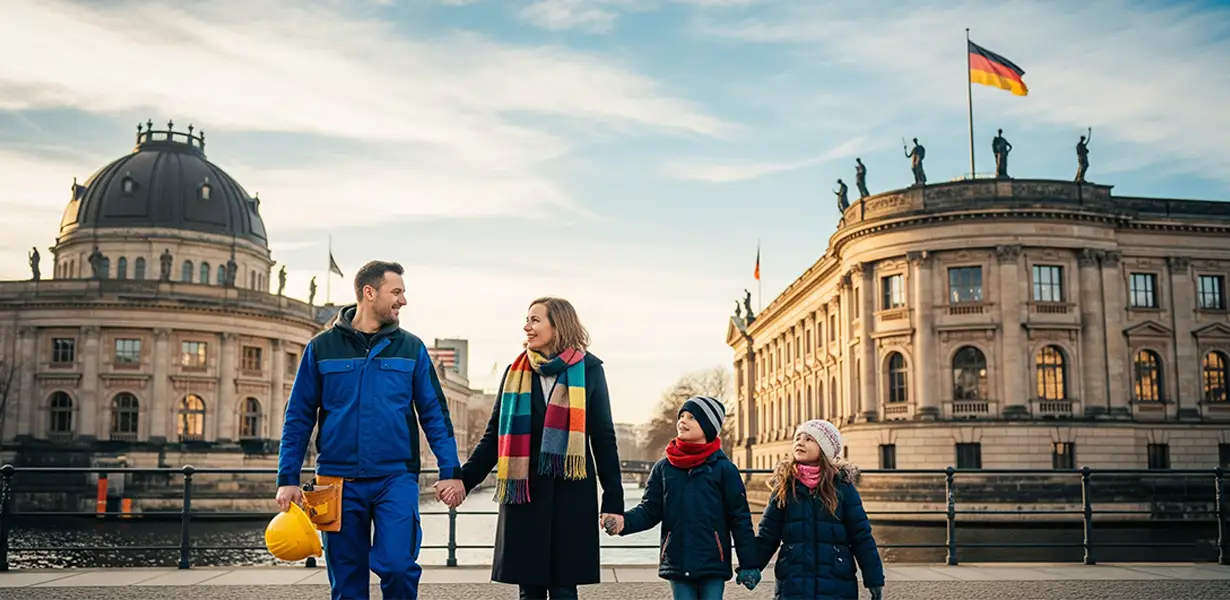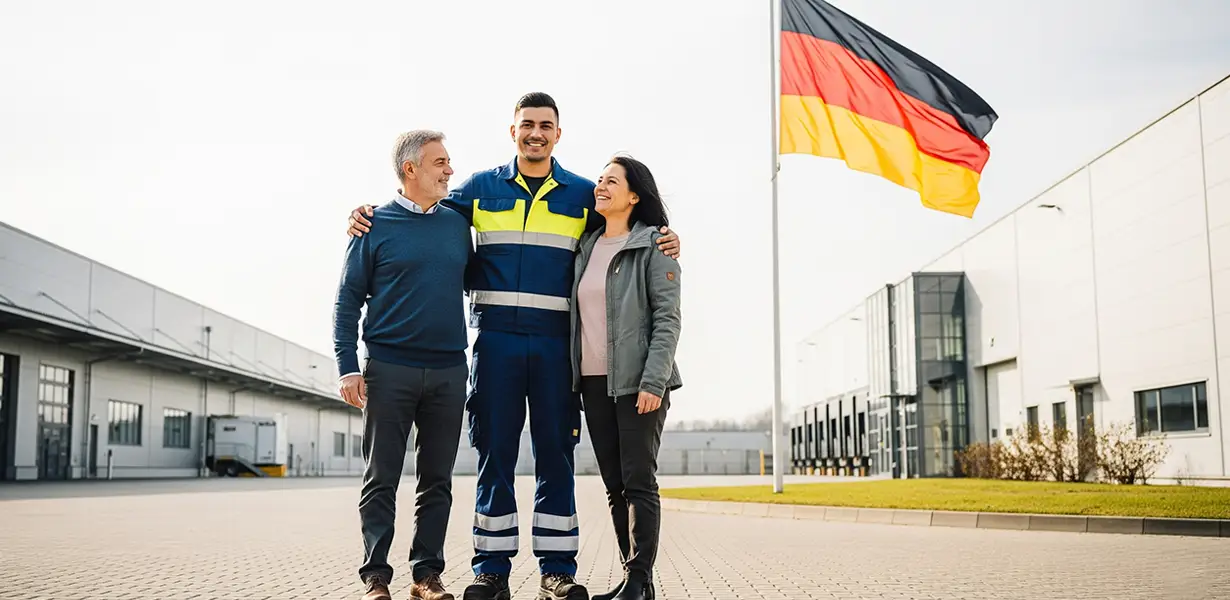The German Family Reunion Visa, officially known as “Familiennachzug,” is a secure and structured for family members of German residents or citizens to reunite and

The German Family Reunion Visa, officially known as “Familiennachzug,” is a secure and structured for family members of German residents or citizens to reunite and live together in Germany. This visa facilitates the legal immigration of spouses, children, and now even parents and parents-in-law, following a law expansion as of March 1, 2024.
Purpose and Eligibility
The Family Reunion Visa enables:
- Spouses or registered partners,
- Minor children,
- Parents and parents-in-law (since March 1, 2024)
of individuals residing legally in Germany to join them, provided certain conditions are met.
Processing Time and Duration
The visa process typically takes 3 to 4 months. Initially issued for a 3-month stay, it must be extended upon arrival for a longer residence permit. The process involves careful documentation and compliance with various requirements.
Key Requirements
General Requirements:
- Proof of family relationship (marriage certificate, birth certificate, etc.)
- Adequate living space in Germany
- Financial capability to support family members
Additional Requirements Based on Relationship:
- Spouses: must be at least 18 years old, possess basic German language skills (minimum A1 level), and present a valid marriage certificate.
- Children: Must be under 18, unmarried, and have the consent of both parents (if applicable).
- Parents: Proof of kinship, financial independence or support, and suitable housing.
Financial Requirements
Starting in 2024, applicants must demonstrate a monthly income of at least €1,027 for each dependent family member. This means applicants must prove financial means of approximately EUR 12,324 annually per dependent.
Suitable Accommodation
The applicant in Germany must demonstrate that their home is large enough for all incoming family members. For instance, a student in a 16 m2 dorm room may not be able to accommodate a spouse and child.
Types of Family Reunion Visas
1.EU Blue Card Holders
- Spouse, children, and now parents can join EU Blue Card holders who have high qualifications and income.
2.Students
- Family members of international students can apply for a family visa to join them.
3.Employees with Work Visa
- Germany allows the families of skilled professionals to reunite and live together within its borders.
4.Permanent Residents
- Those with a settlement permit can sponsor their spouse, children, and parents.
Application Process
Applicants must:
- Submit a complete application and supporting documents
- Schedule an appointment at the German embassy or consulate.
- Undergo an interview and wait for approval
Required Documents
- Valid passport
- Completed application forms
- Biometric photos
- Proof of relationship
- Language certificate (A1 for spouses)
- Copy of sponsor’s passport and residence permit
- Proof of financial means
- Health insurance
- Proof of accommodation
Reasons for Visa Rejection
Obtaining a family reunification (dependent) visa for Germany is a process that requires careful attention and thorough preparation. A visa rejection can be discouraging, but by understanding the common reasons behind it, you can improve your chances of success.
Some of the most frequent reasons for visa refusal include:
- Submitting incomplete or incorrect documentation
- Insufficient financial means of the sponsor (the person residing in Germany and financially supporting the applicant)
- Lack of basic German language skills (specifically required for spouse visas)
- Inadequate accommodation provided by the sponsor
- Submission of forged or fraudulent documents
- Unclear purpose of stay
- History of visa violations or illegal residence in Germany or other Schengen countries
- Issues related to health insurance coverage
Being aware of these factors and avoiding them can make the visa application process smoother and significantly increase the likelihood of approval.
Work Opportunities for Family Members
Fortunately, individuals who enter Germany on a dependent visa have the opportunity to convert their visa into a work visa after arrival. To begin this process, the dependent (such as the spouse of a German resident) must first obtain a residence permit.
Once the residence permit has been issued, the individual can apply for a work permit through the local immigration office (Ausländerbehörde), provided they have secured a job offer from a German employer.
The application for a work permit requires the submission of documents such as the employment contract and proof of qualifications relevant to the job. Upon approval, the applicant will be legally authorized to work in Germany.
Best Time to Apply
- If you’re moving to Germany with your family, it’s best to apply for all visas at the same time.
- once the primary applicant has secured stable housing and income, family members may proceed with their visa application.
- If applying before the main applicant moves, make sure everything is carefully planned and timed.
Final Note
Germany issued 121,000 family reunion visas in 2023, reflecting the increasing demand and effectiveness of the program. Extending eligibility to include parents further reinforces Germany’s commitment to keeping families united.
At Pathway Global Group, we support you through every step of your Family Reunion Visa application. From documentation to interview prep, our team ensures a smooth journey toward reuniting with your loved ones in Germany. Contact us today to begin your application with confidence!

